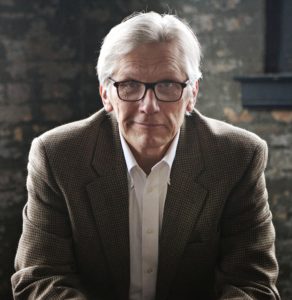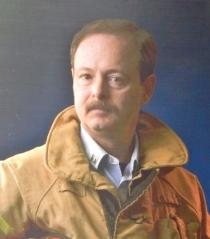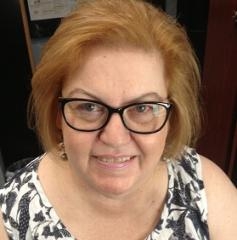 It’s Squib Saturday and, as promised last week, for anyone who is thinking of attending a writers’ conference or workshop, I am publishing the comments of my fellow writers about the effects and benefits of attending the four-day Algonkian novel workshop recently in St. Augustine, Florida. I can honestly say I loved their company during the workshop (okay, the happy hours, too!) It was absolutely terrific to be with writers genuinely dedicated to improving their craft and their story-telling.
It’s Squib Saturday and, as promised last week, for anyone who is thinking of attending a writers’ conference or workshop, I am publishing the comments of my fellow writers about the effects and benefits of attending the four-day Algonkian novel workshop recently in St. Augustine, Florida. I can honestly say I loved their company during the workshop (okay, the happy hours, too!) It was absolutely terrific to be with writers genuinely dedicated to improving their craft and their story-telling.
I wrote about the workshop and what I got out of it in earlier squibs. Here, now, are the plain, unvarnished reviews of my new writer friends from the group.
Gut-Wrenching & Soul-Searching

Doug Spak, working on his first novel, Bad Road Down said: “A number of years ago I went to a spiritual/personal development retreat, one of those intensive, 5-day ordeals during which your soul is physically removed for overhaul. I left the retreat on a high and spent the next week or so feeling as if I was the Dalai Lama or Oprah when she’s hosting Super Soul Sunday. Then I crashed! All of the crying and group hugs and late night sing-alongs around the firepit were replaced by the world: work, bills, family, family wanting to create more bills, Fox News, etc. It was as if the “glow” from the retreat was artificial, unable to sustain itself against the onslaught of life as we know it.
I find myself in a similar place in the aftermath of St. Augustine. For me, the workshop was akin to a spiritual retreat, equal parts gut-wrenching and soul-searching. I wouldn’t trade the experience for anything. I loved being in the company of fellow writers, all of whom are on a similar path. I loved having my work validated by my peers and heartily critiqued by the professionals. And, like many, I suppose, I left St. Augustine on a high.
However, as happened in the weeks following the spiritual retreat, I’ve crashed, my soul consumed by an existential crisis of self-doubt. It is not as much self-doubt about my writing (although that voice tries its best to break through). I am questioning where to take the narrative of Bad Road Down. I’m finding it difficult to assimilate the different feedback received from all of the professionals with whom we met. And so I find myself stuck, using any excuse (i.e. work, binge-watching Twin Peaks, sleep, lack of sleep) to not re-engage with the story.
All of that said, I would do it all over again tomorrow. I learned so much about storytelling and what it takes to sell a story to publishers. The time spent with Robert Butler, in particular, was of tremendous value and I know will benefit my craft. I encourage any writer to take advantage of similar opportunities to improve your work.”
Worth the Dollars
 Noreene Storrie, working on her first novel, The Wrong Turn, said: ” In contrast to some of the other St. Augustine participants, I have been reworking my novel. I had three advantages. I received a previously solicited developmental edit of my book the day I flew back. This view of my manuscript complemented comments from the workshop’s editors, agents, and writers. The second plus was my husband went off on a surprise business trip, and I was alone in an apartment on a Caribbean beach—only my own breakfast, lunch and dinner to fret about. Third, my familiarity from other workshops with the let-down and the need to rebuild my writing superego meant I could shorten the mourning period.
Noreene Storrie, working on her first novel, The Wrong Turn, said: ” In contrast to some of the other St. Augustine participants, I have been reworking my novel. I had three advantages. I received a previously solicited developmental edit of my book the day I flew back. This view of my manuscript complemented comments from the workshop’s editors, agents, and writers. The second plus was my husband went off on a surprise business trip, and I was alone in an apartment on a Caribbean beach—only my own breakfast, lunch and dinner to fret about. Third, my familiarity from other workshops with the let-down and the need to rebuild my writing superego meant I could shorten the mourning period.
I went through my rituals. I ordered writing books mentioned at the workshop, reviewed the comments, reached out to my St. Augustine cohorts via an e-mail weekly check-in, and started once more on page one.
That is what I have been doing, but how do I assess the value of the St. Augustine workshop? I believe every writer needs to test the waters. Writing and rewriting is fun but does not sell the work. Writers must take the risk and pitch their words in some way. The trick, as Michael Neff, the St. Augustine organizer, rants about is finding the right forum. I have now attended five different programs and concluded conferences/workshops are like group therapy. I bring the split personality of me as a writer. I think I’m brilliant, and I think I’m an idiot.
Michael Neff has a strategy worth the dollars. He provides attendees a range of opinions and guides them in sorting what fits. Once I registered his bluntness as Neff- speak, I caught his faith in me, and in my dream I have welcomed him and my fellow attendees in my ear saying, “Get going. Fingers to the keyboard.”
Polished Pitch

Greg Renz, retired fire captain now working on his first novel, Walking the Thin Red Line says : “In preparation for the Algonkian Writers’ Workshop, I spent long days at my desk reading everything required before the start of the conference, some things several times over. I also worked through the Algonkian online course and completed the eight challenging modules. I was sure my story filled all the requirements for a commercially competitive novel. I was ready and excited to work with these experienced professionals on ideas to polish the final draft and get it out into the world.
The very first day, I was told I needed to rethink the plot of my novel, and work through quite a different story from the one I wrote. I was initially devastated, but intent on keeping an open mind. I returned home wiser about the publishing industry and had to go through the stages of grief over the loss of my 400 -page baby. This was not a conference for writers with thin skin. It is a conference for those interested in the almost impossible goal of publication with a major publisher.
Last weekend I attended the University of Wisconsin Writer’s Institute conference in Madison, Wisconsin. Prominent agents from New York and Los Angeles were there taking pitches. One agent commented that if my writing was as good as my pitch, the novel should be amazing. Several others were very interested in the story. I received two requests for my manuscript. I informed them the novel still needed work and they were fine with that. I can thank the Algonkian Conference for my polished pitch. Now, I need to get busy with the revision.”
Real Feedback

Lunka Dinwiddie, working on her first novel, Torn commented : “The Algonkian Writer’s Workshop turned out to be much more than I expected. Situated in beautiful St. Augustine, it provided the perfect environment for inspiration and focus. This was the first writer’s workshop I had ever attended however I was looking for real and honest feedback for my novel in the works.
The Director of the program, Michael Neff, and Senior Literary Agent with Talcott Notch Literary, Paula Munier provided amazing insight, intense knowledge regarding the market and gave very specific feedback to our individual work. I feel very confident that what I gained from the conference will be an instrumental component in reaching commercial publication. I made some great writer friends with whom I continue to stay in contact. I truly believe that what I gained from the Algonkian Writer’s Workshop is invaluable.
Meeting Editors

Paula Zimlicki, working on her first novel, In The Summer of Defiance, said: “I’ve attended several well-known writer workshops, including the famous Iowa Writers Workshops which the university holds every summer. But, it wasn’t until I attended the Algonkian workshop that I felt I truly received my money’s worth — and then some.
What made the difference? For one, Michael Neff connected us with an agent, two editors, and two best selling authors. That said to me two things: he is truly committed to having the eight of us who attended succeed as published authors and he recognizes that getting advice from these successful professionals will give us the kind of advice that will help us achieve our publishing goals. I treasure the connections I made with everyone and, for the first time, know we will all keep in touch, including with the workshop leaders. I came away from St. Augustine feeling that I have the advice I need to revise my novel, and when it is ready to pitch, that I have the tools to pitch successfully.
Inspirational & Validating

Mandi Bean, a New Jersey schoolteacher and previously published author, now working on The Retreat : ” I think I benefitted marvelously from the workshop in many different ways. Stephen King wrote that “writing is a lonely job,” and it’s true; so much of the craft is completed in privacy, in isolation, that writers often get trapped inside their own heads, which can be detrimental not only to the process, but to the writer’s self-esteem, too. The most valuable aspect of the workshop for me was meeting other writers with similar experiences and neuroses and doubts and triumphs and concerns and habits; that kind of validation doesn’t come from a book.
And the whole experience of traveling and meeting others was inspirational; how can anyone write about anything with any kind of authenticity if they haven’t lived? Going to a writers’ workshop in Florida may not be on par with jumping from a perfectly operational airplane, but there is something to be said for participating in new activities. It can engage the mind and heart and soul in a way books on writing simply cannot.
To develop authentic characters, to elevate one’s sentence quality, if you will, a writer must interact with people and that was the most rewarding experience from the workshop. My fellow attendees were simply wonderful and validated my ambitions in ways that the mentors could not. I was absolutely thrilled and completely happy when Robert Olen Butler (Pulitzer Prize winner) understood the intent of my story and said he believed I could write a literary novel, but I was almost equally ecstatic when my fellow writers could commiserate about the complicated, ever-changing process of becoming published.
Because the other half of that Stephen King quote goes, “Having someone who believes in you makes a lot if difference. They don’t have to makes speeches. Just believing is usually enough.” And that’s what the workshop/conference offered me that was simply invaluable; people who believe in me.”
Please Sign Up For Future Posts
 If you enjoyed this squib, and would like to read future posts about writing and related topics about a writer’s life, please click through to the Welcome page to sign up for email notification of new posts. Only one notification for each squib — and No Sales Pitches Ever .
If you enjoyed this squib, and would like to read future posts about writing and related topics about a writer’s life, please click through to the Welcome page to sign up for email notification of new posts. Only one notification for each squib — and No Sales Pitches Ever .
Oh, and if you liked this post, please let me know by leaving a comment or just clicking on the Like button
I’m jealous. No, envious. No, jealous…
It was a great experience, but very geared to honing your WIP into a commercial bestseller. Of course, that’s not for everyone. I know a number of writers who wouldn’t be happy with being directed in that way.
Then they should probably be in a workshop for literary writers or self-publishers. It’s up to each writer to make their own decision about their course, and we give them a choice. I always make that clear from the start. If any writer doesn’t wish to push the commercial dominoes, we won’t go there.
Absolutely right. No argument there from me. You were absolutely clear before we applied and after we arrived at the workshop that this was a workshop for writers to learn genre conventions, and how to ultimately present/pitch a work that can be considered commercial fiction.
Having written for newspapers, magazines, TV, and having a couple of traditionally published thrillers, I cannot imagine not wanting the widest possible audience. But like you say, each writer has to make his/her own decision. No one is twisting any arms !!!!!
When KURT VONNEGUT WAS ASKED HIS EVALUATION OF THE NYT BEST SELLER LIST
HIS REPLY “THEY SELL A LOT OF DOG FOOD”
Commercial
designed on making money
I thought the arts ,painting,writing,music brought visual and audible enjoyment to
its audience.
wrong again !
Hi Don, You’re only a little bit wrong, here. Commercial simply means it sells to a huge audience. Presumably that audience is getting some enjoyment out of it, otherwise it wouldn’t be paying for it. You may want to question that huge audience’s taste, but that’s injecting your own opinion and taste into the issue. I say, we shouldn’t be snobby about the arts: One man’s can of Campbell Soup is another man’s priceless Warhol, no?
Your widom is fine tuned!
Campbell soup brings to my addled mind the tv sub lineal dose of comfort that go ahead eat all the fast food you want because tums will put out your heart burn,and you can eat that 4 for 4. Oh yes and be sure to call your Dr
And Hitler would never use gas against the 4 million! Where was the world then,and where is it now, Well almost 80 yrs have passed since showering the Poles,Jews, Gypsies with poisen. We are immune to death. ??? Sean should tender his resignation!
Don, I welcome reading your comments in these columns when they are relevant to the specific post. I have removed your following three comments on Sean Spicer not because I disagree with them, but there are a thousand other forums where you — and I — can air those views. Here, they’re just not relevant to the discussion of this particular post.
Well spoken,written,and received!
Thank you!
Nicely done, Joanna. Thank you.
And, thank you so much Greg. Really appreciated your contribution to the segment.